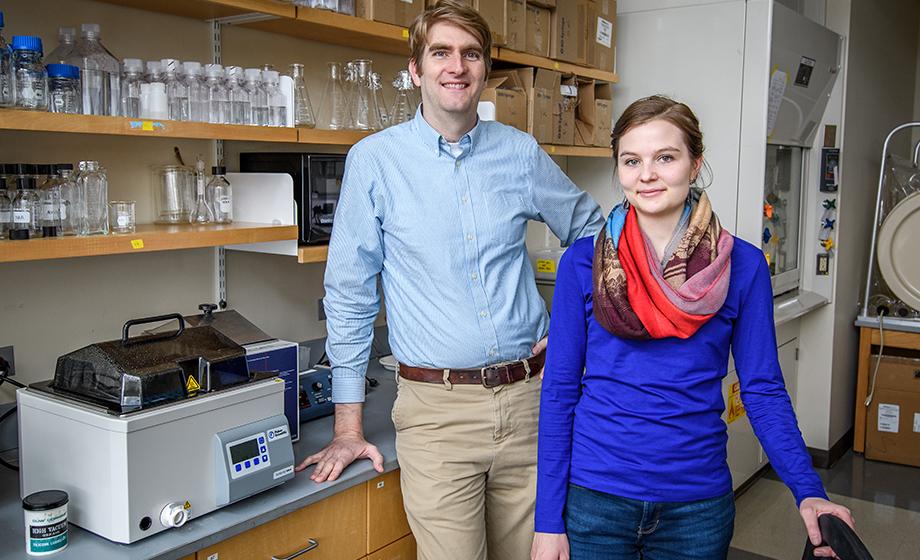
Emily Dart, a first-year doctoral student in biology at Clark University, has won a National Science Foundation (NSF) Graduate Research Fellowship, making her one of only 2,000 students, out of 12,000 who applied, to receive the prestigious award this year.
The NSF Graduate Research Fellowship Program (GRFP) recognizes and supports outstanding graduate students in NSF-supported science, technology, engineering, and mathematics (STEM) disciplines who are pursuing research-based master’s and doctoral degrees at accredited U.S. institutions.
Dart won an award in the field of microbial biology, which included fellow recipients from MIT, University of California, Berkeley, Stanford University, and other major research institutions.
She joins four current Clark graduate students – Benjamin Fash, Nathan Gill, Leslie Gross-Wyrtzen, and Catherine Jampel, all doctoral students in the Graduate School of Geography – who have received this prestigious award. Since 2005, 12 Clark graduate students in biology, geography, and psychology have received the fellowships.
“NSF GRFP is a great program for graduate students and an honor to the awardees and the University. I encourage every graduate student who is eligible to apply for this program,” says Yuko Aoyama, associate provost and dean of research.
Dart conducts research in the lab of Nathan Ahlgren, a marine microbial ecologist and assistant professor of biology.
“Emily is a very talented individual and is already a strong writer. In addition to her well-written and exciting research proposal, she stands out because of her previous engagement in encouraging young girls in STEM fields,” Ahlgren says. “She also provided a strong outreach program idea involving citizen science work connected to her research. I think this all reflects the broader ethos and mission of Clark – that we are both pursuing rigorous scholarship and are engaged in translating that work to positively impacting our local community.”
In Ahlgren’s lab, Dart studies cyanobacteria – bacteria found in water – and the viruses that infect them, hoping to better understand their relationships in fresh and saltwater environments.
“Bacteria underlie ecological processes, they fix carbon dioxide, produce a large percentage of the oxygen we breath, and recycle nutrients (like nitrogen and phosphorus),” she explains. “The populations of bacteria that carry out these ecologically important roles are shaped by the viruses that prey on them. However, very little is known about the predator-prey relationships that exist between viral and bacterial populations.”
Dart entered Clark in fall 2017, after having received a B.S. in biology from the University of Utah.


